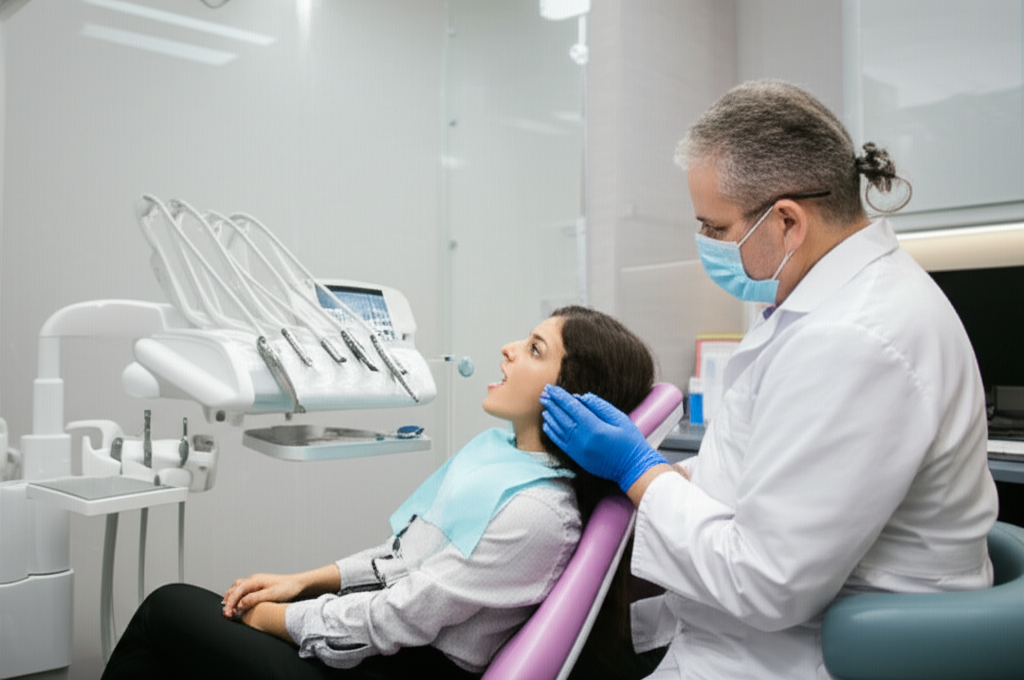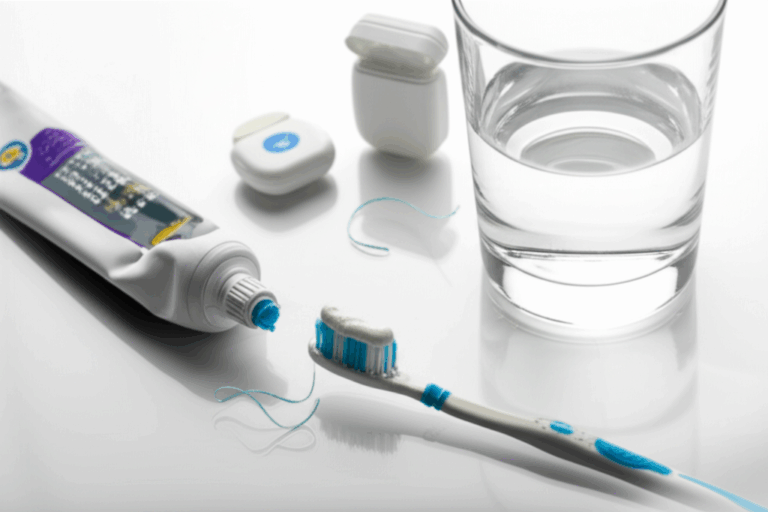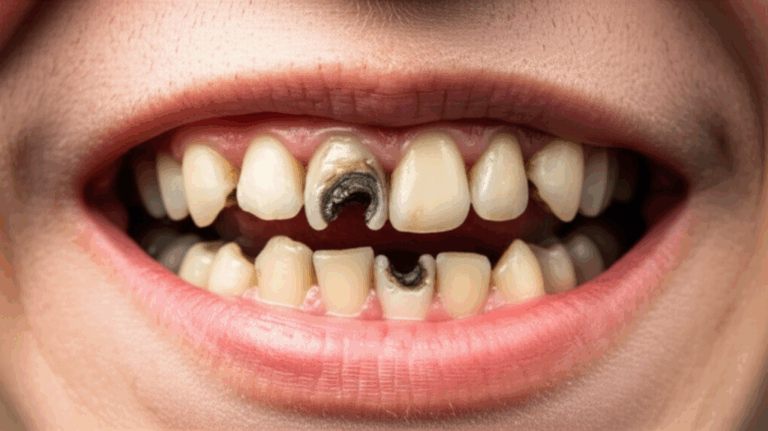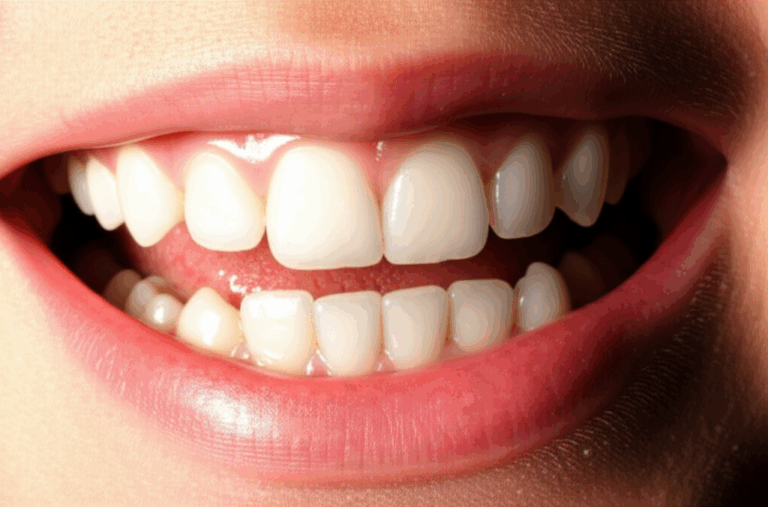
Does PCOS Cause Dental Problems? Understanding the Link & How to Protect Your Oral Health
Introduction: My Direct Answer and Why This Matters
If you have PCOS and worry about your teeth or gums, you’re not alone. The short answer? Yes—PCOS can really cause dental problems, and from what I’ve seen, the link is bigger than I thought.
Like a lot of people, I first thought Polycystic Ovary Syndrome (PCOS) was just about periods or weight. But after I started getting gum problems, unexpected cavities, and always feeling like my mouth was dry, I saw that PCOS affects a lot more than just your cycle or hormones.
I want to share what I’ve learned about how PCOS affects mouth health, with real facts, personal stories, and simple tips that have helped me. You’ll see why these dental troubles happen, which signs to watch for, and how to get back some control. My hope is to help you make taking care of your mouth a normal and easy part of your PCOS plan—not something you think about only when there’s pain.
Table of Contents
- How PCOS Impacts Your Oral Health
- Specific Dental Problems Linked to PCOS
- Practical Strategies: Protecting Your Smile with PCOS
- When to See Your Dentist (and Doctor)
- Real-Life Data: What the Studies Say
- Final Thoughts: How Prioritizing Oral Care Changed Everything for Me
How PCOS Impacts Your Oral Health
At first, it seems odd that PCOS could affect your mouth. But after living with it and reading a lot, I found four big things that link PCOS to dental health: inflammation, hormones, blood sugar, and the bacteria in your mouth. Let’s check these out.
1. Chronic Inflammation: The Hidden Agitator
PCOS isn’t only about irregular periods or oily skin—it’s an inflammatory problem. That swelling and immune reaction doesn’t just hit your ovaries; it’s all over your body, including your gums and jaw.
My gum doctor explained that this constant, low-grade inflammation made my gums easier to infect. That cleared up why I’d get quick plaque or sore, bleeding gums even when I brushed gently. This swelling also means gum disease can make PCOS symptoms, like insulin resistance, even worse.
2. Hormonal Imbalance: The Unruly Maestro
PCOS messes with your hormones. But how does that matter for your mouth? A lot, it turns out. High testosterone and bouncing estrogen or progesterone levels mean your gums react more to even a little bit of plaque. For me, my gums felt weaker and sometimes bled just from normal flossing.
These hormone changes also mess with saliva flow, making your mouth drier and a bit less able to fight off germs. I always thought I just had a “cotton mouth,” but now I see that it was part of the PCOS picture.
3. Insulin Resistance and Sugar Swings
If you have PCOS, you’ve probably heard of insulin resistance. For me, it meant wanting sweets and being tired after I ate, but I didn’t know it affected my mouth. Higher blood sugar is like giving germs a playground, so it’s easier to get gum infections and small sores that take ages to heal.
I got a little gum sore once that just wouldn’t get better. My dentist said higher blood sugar makes it harder for wounds in your mouth to heal. Plus, insulin troubles make dry mouth and cavities more likely, even if you brush well.
4. Altered Oral Microbiome
Some studies say PCOS changes the type and balance of germs in your mouth. I didn’t think about this until my bad breath wouldn’t go away. Turns out, more of the “bad” germs and fewer “good” ones can make gum problems worse and bring more swelling. You won’t see this, but your gums might feel sore or tender.
Specific Dental Problems Linked to PCOS
After I noticed my dental troubles could be tied to PCOS, I watched for certain mouth problems. Here’s what I and lots of women with PCOS deal with (and what studies show).
Periodontal Disease (Gum Disease): More Than Just Bleeding Gums
The first thing I noticed was gums that bled often, but it didn’t stop there. Gum disease means anything from mild gingivitis (red, swollen gums) up to periodontitis (really bad infection that can even cause teeth loss).
What to look for:
- Gums that bleed easily, especially when brushing or flossing
- Red, puffy, or sore gums that pull back
- Bad breath that just won’t go away
- Loose teeth or sore spots when you bite
It’s not just me—Women with PCOS can be two or three times more likely to get gum problems. Inflammation and mixed-up hormones make gums weaker and easier to infect.
Cavities and Tooth Decay: Not Just About Sugar
I did all the right things for my teeth, but still got cavities. It was confusing! PCOS can mess with your saliva (which normally helps protect your teeth), wear down enamel, and make you want starchy foods more because of blood sugar ups and downs.
If your mouth is drier and you snack more, cavities can pop up fast. Even when I thought my habits were good, I still ended up needing two fillings in a year.
Dry Mouth (Xerostomia): The Unseen Trigger
It’s normal to get thirsty, but dry mouth from PCOS is worse and constant. Over a third of women with PCOS have dry mouth—way more than women without it.
Dry mouth is not just annoying. Saliva washes out food, keeps acid away, and helps fight germs. Less saliva means more plaque, quicker cavities, and hard chewing or talking. For me, this was a struggle until I found tricks to help get my mouth wetter (I’ll share those below).
TMJ Disorders: The Unexpected Jaw Nightmare
PCOS can even raise the chance that your jaw joint gets sore or makes clicking sounds (TMJ problems). My jaw would ache and pop sometimes, and I ignored it until I started getting headaches.
It looks like swelling and hormones can affect the jaw joint, too. Not everyone with PCOS gets TMJ pain, but it’s not rare—I sure didn’t expect it.
Other Oral Issues: The Smaller but Stubborn Symptoms
A couple of other things I and friends with PCOS have run into:
- Oral thrush (yeast infection in the mouth): White patches that might be from immune system changes or from meds like Metformin.
- Lasting bad breath: Sometimes mouthwash and brushing just don’t fix it, often because of dry mouth or gum problems.
Practical Strategies: Protecting Your Smile with PCOS
Honestly, I used to think a basic brush-and-floss routine was enough. For me and lots of women with PCOS, a stronger plan is better. Here’s what’s helped me and what my dentist suggests.
1. Oral Hygiene Upgrades: Not Just the Basics
- Brush well (and gently), twice a day: I now use a soft toothbrush and don’t rush—two minutes, morning and night.
- Floss or use little brushes for between teeth every day: I used to skip on busy days, but now it’s a must.
- Try an easy-on-the-mouth mouthwash: My dentist said to use alcohol-free rinses, especially when my gums were sore.
- Slow down: Rushing means you miss spots. Taking it easy helps reduce plaque.
If you’re unsure which toothpaste or mouthwash is best, ask your dentist. Some washes can dry your mouth more, so pick one that works for you.
2. Regular Dental Visits: Your Secret Weapon
What made the biggest difference? Telling my dentist about my PCOS. Suddenly, she looked for gum and dry mouth signs on purpose, and she suggested that I come for cleanings more often—sometimes more than every six months.
Tip:
Always tell your dentist about your PCOS and any medicines you take. Your dentist can spot problems sooner if they know everything. And if you need special work (like crowns or bridges), they might send you to a crown and bridge lab or get help from another expert.
3. Managing PCOS for Better Dental Health
One big thing I learned: you’ve got to treat the PCOS to help your mouth too. Here’s what helped me:
- Keep blood sugar steady: My doctor helped with food swaps and medicine (like Metformin), which made my gums and energy better.
- Balance hormones: Meds or lifestyle changes kept my monthly gum flares down.
- Drink water: Having a reusable water bottle meant my dry mouth hurt less and I avoided sweet drinks that made things worse.
- Lower stress: Feeling stressed made everything worse for me. Short outdoor walks and breathing exercises really helped.
4. Diet and Lifestyle Shifts: Food for Your Teeth
Here’s my quick list of stuff that helped both my mouth and my body:
- Cut back on sugary and processed foods: My cravings got worse with blood sugar swings. Whole grains and more fiber helped me feel full longer and kept my mouth healthier.
- Eat anti-inflammatory foods: Fish, nuts, and green veggies seemed to help my swelling.
- Smart snacking: I stopped snacking all day every day and tried to brush after eating when possible.
- Drink more water: Simple, but it made a big impact.
If you want reminders on basics or want to read more, I found teeth health and dental care pages helpful.
When to See Your Dentist (and Doctor)
So when should you ask for help? Here are the signs I don’t ignore:
- Bleeding, red, or swollen gums, even with gentle brushing
- Bad breath that just won’t go away
- Dry, sticky feeling in your mouth that lasts
- Sores in your mouth that don’t heal in a week
- Jaw pain, popping, or stiffness
Go early. I also ask my dentist and doctor to talk, if they can—even just sharing notes. They need the whole story, not pieces.
If your doctor and dentist both help you, you become the boss of your health—not just the person with problems to fix. It changed things for me for the better.
Real-Life Data: What the Studies Say
Still not sure? Here are some facts from research that line up with my own story:
| Study/Source | Key Finding/Statistic | What It Means |
|---|---|---|
| Meta-Analysis 2021 (Journal of Clinical Periodontology) | Women with PCOS have 2-3x higher risk of gum disease | Gum disease is way more common—get checked sooner. |
| Cohort Study 2019 (Oral Diseases Journal) | 68% of women with PCOS had gum problems vs. 45% in women without | Even mild gum issues are common—don’t wait or hide symptoms. |
| Survey 2020 (Dental Journal) | 35% of PCOS patients had dry mouth (vs. 15%) | Dry mouth shows up a lot: watch for cavities and pain. |
| Review 2022 (Oral Maxillofacial Surgery) | More women with PCOS had jaw issues | Listen to jaw pain and headaches—see someone early. |
| Clinical Trial 2018 (Endocrine Practice) | Women who fixed insulin problems had less gum swelling | Treating PCOS really helps your mouth AND your body. |
| Case Series 2017 (Case Reports in Dentistry) | Young PCOS patients with dry mouth got more cavities—even with good habits | Brushing and flossing helps, but aren’t always enough—see your dentist often. |
| Microbiome Study 2023 (Frontiers in Cell. Infect. Microbiol.) | PCOS women had more “bad” germs and fewer “good” ones | PCOS changes mouth germs—bad balance can cause more trouble. |
These results matched what I’ve been through. When I worked on my PCOS and saw my dentist more, my mouth felt healthier and I got fewer surprises.
Final Thoughts: How Prioritizing Oral Care Changed Everything for Me
Looking back, I really wish someone told me sooner that PCOS can affect teeth and gums. I spent so much time thinking I was just “bad at brushing,” but my hormones, swelling, and sugar changes were making it much harder.
Here’s the simple truth:
Your dental health is tied to the rest of your health. With PCOS, they go hand in hand. Doing a little bit more—better brushing, more dental visits, watching your meals, talking to your doctors and dentists—can change things a whole lot.
Don’t wait for a big mouth problem. Start now. Tell your dentist about your PCOS. If you need help with special restorations, see a crown and bridge lab or a digital dental lab as needed.
Since I started caring more for both my PCOS and dental health, I stopped feeling stuck and started feeling in control. You can too—just take one easy step at a time.
If you want to brush up on the basics or understand more about dental diseases, it’s worth reading more. Remember, your smile is part of your PCOS journey—and it’s something you really can protect.
Take care of your smile—and trust how you feel. If something seems wrong, it probably is. You can do this, one brush and dentist visit at a time.








